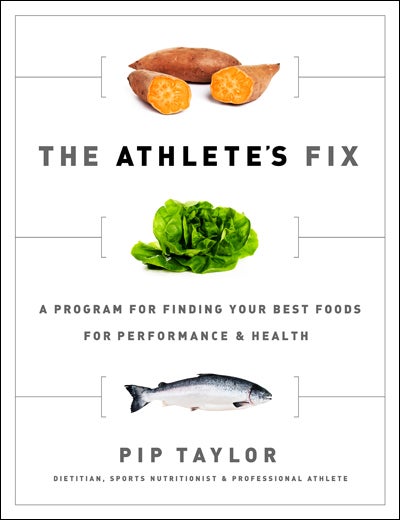15 Habits That Can Cause GI Problems For Athletes

*Adapted with permission of VeloPress from The Athlete’s Fix by Pip Taylor.
Gastrointestinal specialists, dietitians and nutritionists spend a lot of time talking about bowel movements. In my experience, the same thing can be said of athletes. Although there are those athletes who remain a little more shy, I can guarantee they are still thinking about it—and for good reason. Gastrointestinal complaints are among the most common and frequent complaints of endurance athletes—in particular runners.
60-90 Percent of Runners Have GI Troubles
The feeling of urgency that hits during exercise is often called “runner’s guts,” a state that is widely accepted as part and parcel of being an athlete. It is estimated that the vast majority of runners, somewhere between 60-90 percent, have experienced some sort of gastrointestinal distress: nausea, diarrhea, stomach cramps and pains, bloating and burping. I would argue that every runner experiences GI issues over the course of his or her years of training and racing. Those who haven’t are either lying or are new enough to the sport to be unaware of the joys that lie ahead for them.
Upper GI distress manifests as heartburn, vomiting, belching, bloating, nausea and/or stomach pain.
Lower GI distress includes cramping, gas, urgency and diarrhea.
Yet GI distress is not something you have to put up with to enjoy your sport.
RELATED: How Do I Ease GI Distress During A Race?
Habits and Foods That Can Cause GI Problems for Athletes
Higher intensity exercise makes GI issues more likely, and women experience GI issue more commonly than men. Here are the foods and habits that often cause GI distress for athletes:
- A food intolerance, of course.
- FODMAPs: A kind of carbohydrate.
- Fructose: Commonly found in sports foods and drinks.
- Lactose: Found in varying levels in dairy products.
- Caffeine: Found in coffee, tea, soft drinks, chocolate, sports foods.
- Meal timing: Eating too close to exercise.
- Fat and fiber: Too much of either can rush your guts.
- High-carb sports drinks: Dehydrate your gut before they rehydrate you.
- Dehydration: Can wreck your gut.
- Stress: Key workout or pre-race nerves can make you run for the port-o-let.
- NSAIDs: Can cause leaky gut syndrome.
- Antibiotics: Can decimate your gut biome.
- Bad posture: Puts physical pressure on your gut.
- Vibration: Running and jumping, anyone?
- Antidiarrheal and antinausea meds: Believe it or not, new research shows these meds interfere with hydration and make things worse for athletes, not better.
GI distress is not something you have to put up with to enjoy your sport! The Athlete’s Fix can help you identify your problem foods that cause your GI distress. If your GI issues aren’t caused by a food intolerance, there are several other strategies that can make life easier.
[velopress cta=”Shop now” align=”center” title=”Buy the Book”]